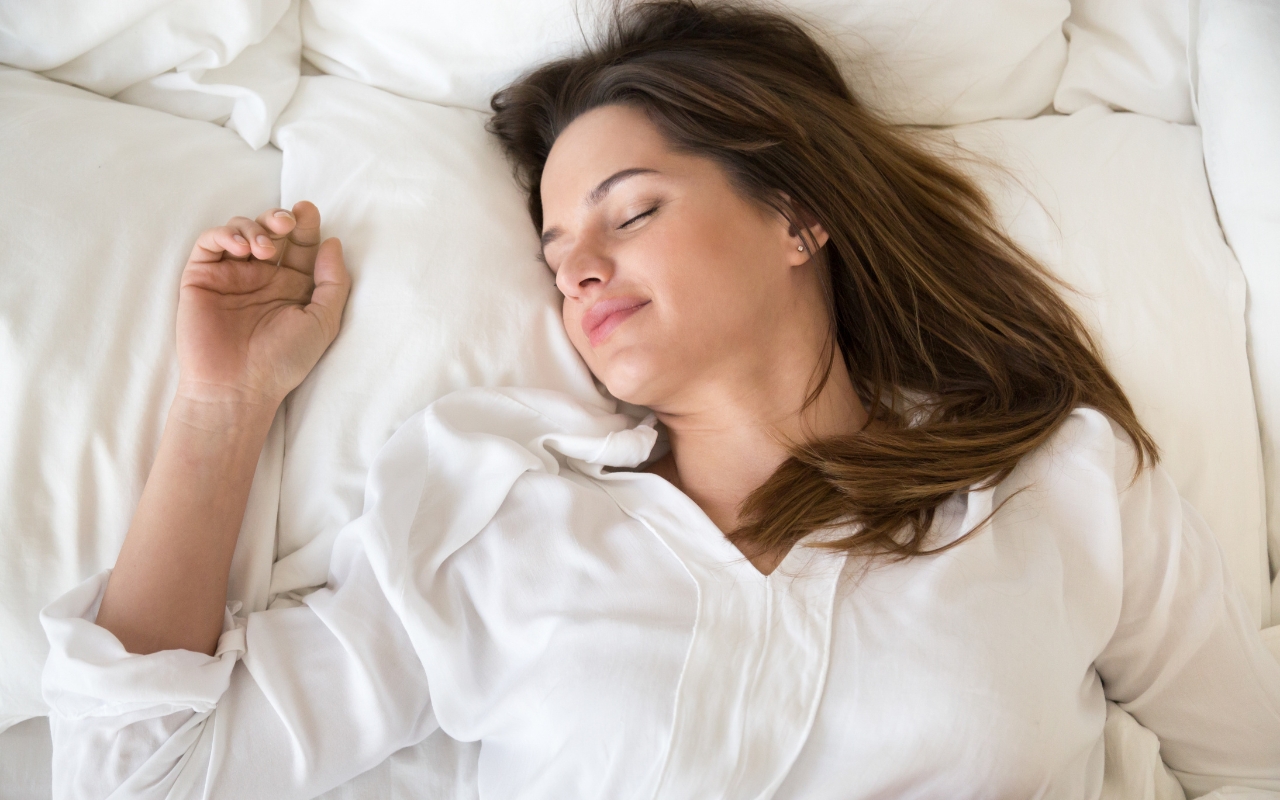In a world where the pace of life is accelerating, the importance of sleep often gets overlooked. However, sleep is far from a luxury—it is a biological necessity that is crucial to our overall health and well-being. This comprehensive guide offers proven strategies to help you achieve high-quality sleep and enhance your physical and mental health.
The Science Behind Sleep
Sleep is a complex process that significantly impacts almost every body system. Our circadian rhythm, essentially an internal clock, regulates the sleep-wake cycle. This rhythm is influenced by natural light, which helps synchronize the body's various physiological processes. Sleep quality suffers When this rhythm is disrupted by irregular sleep hours, excessive screen time, or lack of exposure to natural light.
The stages of sleep—light sleep, deep sleep, and REM (Rapid Eye Movement) sleep—all play unique roles in maintaining health. REM sleep, in particular, is vital for cognitive functions such as memory consolidation and emotional regulation. The body performs most of its repair and regeneration in deep sleep, characterized by delta brain waves.
Creating an Optimal Sleeping Environment
Creating the right environment is one of the most effective ways to improve sleep quality. This involves both the physical space and the behavioral cues that signal to your body that it's time to wind down.
Control Light Exposure
Modern life is filled with artificial light sources that can interfere with our sleep cycles. The blue light emitted by smartphones, laptops, and TVs suppresses the production of melatonin, a hormone responsible for regulating sleep. Aim to limit screen time to at least an hour before bed to combat this. Consider using apps that filter blue light from your devices in the evening.
Make your sleeping area as dark as possible for a truly restful night. Blackout curtains can be a worthy investment if you live in an area with significant light pollution. Additionally, when you wake up at night to use the bathroom, use a flashlight instead of turning on bright lights.
Optimize Temperature
The body's core temperature drops during sleep; maintaining a more relaxed room can facilitate this natural process. Experts recommend setting your thermostat between 65 and 72 degrees Fahrenheit. This range helps keep your body at a temperature conducive to restful sleep. Women experiencing menopause should particularly heed this advice, as hot flashes can severely disrupt sleep (Mayo Clinic).
Minimize Noise
Unwanted noise can be a significant barrier to quality sleep. While some people might sleep through anything, others are more sensitive to disturbances. White noise machines or fans can help drown out disruptive sounds. For those living in boisterous environments, earplugs might be a practical solution.
Establishing a Consistent Sleep Routine
Children benefit from a bedtime routine, but adults can also improve sleep by adhering to a consistent schedule. Going to bed and waking up simultaneously every day, including weekends, helps regulate your internal clock. This consistency can improve sleep quality and make it easier to wake up feeling refreshed.
Pre-Sleep Rituals
Calming activities before bed can signal your body that it's time to unwind. Gentle stretching, reading a physical book, or listening to soothing music can all serve as excellent preludes to sleep. Avoid stimulating activities such as watching TV or engaging in heated discussions right before bed.
Limit Naps
While naps can be beneficial, significantly if you are sleep-deprived, they can also interfere with your nighttime sleep. If you need to nap, keep it to 20 minutes or less and avoid napping late in the day.
Managing Stress and Anxiety
Stress and anxiety are common culprits of sleep disturbances. Chronic stress elevates cortisol levels, making falling and staying asleep difficult. Implementing effective stress management techniques can significantly improve sleep quality.
Mindfulness and Meditation
Mindfulness practices, including meditation, can help calm the mind and reduce stress. Mindfulness involves focusing on the present moment and accepting it without judgment. Techniques such as deep breathing, progressive muscle relaxation, and guided imagery can also be effective.
Journaling
Writing down your thoughts before bed can help clear your mind. A gratitude journal, where you note things you're thankful for, can shift focus away from stress and promote positive thinking. This practice can be particularly beneficial in reducing bedtime anxiety.
Exercise and Physical Activity
Exercise is one of the most effective ways to improve sleep quality. Physical activity increases time spent in deep sleep, the most physically restorative sleep phase. However, the timing and intensity of exercise can influence its effectiveness.
Timing Is Key
While exercise is beneficial, intense physical activity close to bedtime can be counterproductive. This is because exercise increases core body temperature and stimulates the nervous system, possibly delaying sleep onset. Aim to finish vigorous workouts at least two hours before bed.
Types of Exercise
Both aerobic exercise, such as running or swimming, and strength training exercises can improve sleep. Incorporating a mix of activities can prevent boredom and maintain a long-term commitment to physical fitness.
Healthy Eating and Drinking Habits
What you consume—and when you consume it—can significantly impact your sleep. Certain foods and beverages can interfere with the body’s ability to fall and stay asleep.
Caffeine and Nicotine
Both caffeine and nicotine are stimulants that can disrupt sleep. The effects of caffeine can last up to 6-8 hours, so it's wise to avoid coffee and other caffeinated beverages in the afternoon and evening. Nicotine, found in cigarettes and other tobacco products, can also hinder your ability to fall asleep.
Alcohol
While alcohol may make you feel drowsy initially, it can disrupt sleep later in the night. Alcohol interferes with the natural production of melatonin, leading to less restful sleep and increased wakefulness during the night.
Heavy Meals
Eating a large meal before bed can also interfere with sleep. The digestion process can keep you awake and may lead to discomfort. Try to finish eating at least two to three hours before bed to give your body ample time to digest.
The Role of Natural Supplements
Natural supplements might offer additional support for those who still struggle with sleep despite lifestyle changes. However, consulting with a healthcare provider before starting any new supplement regimen is essential.
Melatonin
Melatonin is a naturally occurring hormone that signals your brain that it’s time to sleep. Taking melatonin supplements can help regulate sleep cycles, particularly for those dealing with jet lag or shift work. Start with a low dose, around 1-2 mg, taken 30-60 minutes before bed (Healthline).
Other Supplements
Several other supplements can promote relaxation and improve sleep quality. These include:
- Valerian Root: Valerian root is often used to reduce anxiety and improve sleep. It is taken in doses of around 500 mg before bed.
- Magnesium: This mineral plays a role in over 600 enzymatic reactions in the body and can improve sleep quality, especially for those who are deficient.
- L-theanine: An amino acid found primarily in tea leaves, L-theanine can promote relaxation and reduce stress, enhancing sleep quality.
- Glycine: An amino acid that can improve sleep quality when taken in doses of about 3 grams before bed.
Seeking Professional Help
If you've tried numerous strategies and still struggle with sleep, it may be time to seek professional help. Chronic sleep issues can be a sign of underlying health problems, such as sleep apnea or insomnia, which require medical intervention.
Sleep Studies
A healthcare provider might suggest a sleep study, where your sleep patterns are monitored in a controlled environment. This can help diagnose conditions like sleep apnea, restless legs syndrome, or periodic limb movement disorder.
Cognitive Behavioral Therapy for Insomnia (CBT-I)
CBT-I is a structured program that helps you identify and replace thoughts and behaviors that cause or worsen sleep problems with habits that promote sound sleep. Unlike sleeping pills, CBT-I helps you overcome the underlying causes of your sleep problems.
Conclusion
Achieving high-quality sleep is not an elusive dream but an attainable goal through environmental optimization, lifestyle adjustments, stress management, and healthy habits. While it may require some trial and error to determine what works best for you, the payoff regarding improved mental clarity, emotional stability, and overall health is well worth the effort.









